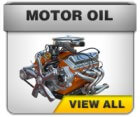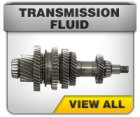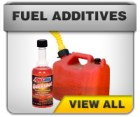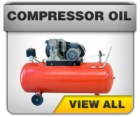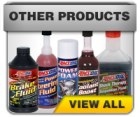What Is Synthetic Oil?
Engines, transmissions and other mechanical systems contain hundreds of moving parts. Though the metal surfaces of these parts look smooth, they are actually full of microscopic peaks and valleys. When the peak of one surface touches its mating surface, it causes wear. Wear may lead to costly component damage or failure. Wear reduction and failure prevention are the primary functions of lubrication.
Refined Oils
Conventional oils - the oils most people are familiar with - are refined from crude oil. Refining is a process of physically separating light oil components from heavy ones.
Crude oil contains a full range of different kinds of molecules. Many are similar in weight but not in structure. The refining process cannot distinguish such molecules, so a wide assortment of molecules is present in a finished lubricant made from crude oil stocks.
Many crude oil molecules are not beneficial to the lubrication process. For example, paraffin causes refined oils to thicken and flow poorly in cold temperatures. Molecules containing sulfur, nitrogen and other elements invite the formation of sludge and other byproducts of lubricant breakdown, especially in hightemperature applications. Sludge and breakdown by-products significantly increase wear rates.
The different shapes of the assorted molecules of refined oils means lubricant surfaces are irregular at the molecular level. As lubricant layers flow across one another during the lubrication process, these irregularities create friction, which consumes power, reduces fuel efficiency and increases heat and wear.
Synthetic oils
Synthetic oils are chemically engineered from pure chemicals rather than refined from crude oil. That gives them significant advantages over refined oils.
Pure
The base stocks from which synthetic oils are made contain no sulfur, nitrogen or other elements that invite the formation of sludge and other products of lubricant breakdown. Synthetic oils can be used in higher temperatures than refined oils without breaking down. Their resistance to breakdown also allows them to be used longer than refined oils can be used. Lubricated systems stay cleaner and last longer with synthetics.
Uniform
The base stocks from which synthetic oils are made feature uniform and smooth molecular structures, which ensures low friction as lubricant layers slide across one another. Reduced friction increases energy through-put for greater fuel efficiency and power, and reduces heat and wear for longer equipment life. Molecular uniformity also helps synthetics resist thinning in heat and thickening in cold, which helps them protect better than refined oils over a system's operating temperature range and helps ensure secure sealing.
Designable
Many different kinds of base stocks may be used to create synthetic oils, allowing a synthetic to be designed for virtually any application. Some base stocks are ideal for use in extremely cold environments, others are perfect for use in extreme heat. Some are extremely safe in applications in which refined oils pose a fire or explosion hazard. Refined oils simply do not offer the design flexibility synthetics offer.
The designability of synthetics also allows them to be tailored very specifically to the needs of everyday applications, such as automotive engines, commercial equipment or industrial machinery. That specificity helps ensure long life and peak power, performance and fuel economy from the lubricated system, as well as extended lubricant life.
Why Are AMSOIL Synthetic oils the Best?
As a jet fighter squadron commander Lieutenant Colonel Albert J. Amatuzio had ample opportunity to witness synthetic oils in action. These oils are used exclusively in jet engines because of three extraordinary performance characteristics: an ability to reduce friction and wear on engine components, an ability to function dependably at severe temperature extremes and an ability to withstand rigorous and lengthy engine operation without chemical breakdown.
Recognizing that these same benefits would prove invaluable in combustion engines, Amatuzio began conducting serious research in 1963. By 1966 he had formulated a synthetic motor oil and put it to use in vehicles in northern Minnesota. Throughout the late '60s Amatuzio continued his research and development and sold commercially available synthetic oils under a variety of names. In 1970 he incorporated his own name into a commercially sold product called AMMOIL. In 1971 this product name was changed to AMZOIL and it continued to be sold commercially. The true milestone came in 1972 when AMZOIL became the first synthetic motor oil in the world to meet American Petroleum Institute criteria. The new lubricant performed like no other before it. When the first can appeared on the market in 1972, it signaled the birth of an entire industry. Shortly thereafter, AMZOIL became AMSOIL and the company's products went on to expand the boundaries of lubrication science and redefine the performance possibilities of modern machinery and engines.
High-Temperature Protection and Performance
AMSOIL synthetic oils are much more stable in high temperatures than are refined oils and other synthetic oils. Their superior heat stability reduces the rates of oil consumption, lubricant breakdown and lubricant oxidation, which keeps oil consumption low; equipment clean, protected and running right; and extends lubricant life.
Cold-Temperature Protection and Performance
AMSOIL synthetic oils remain fluid in temperatures far below zero, allowing dependable engine start-up, fast lubrication, dependable protection and maximum fuel economy in severe cold operation.
Increased Efficiency
AMSOIL synthetic oils are superior to refined oils and other synthetic oils in reducing friction, helping lubricated systems use fuel energy for work, not for overcoming drag. Superior friction reduction, as well as lower volatility rates, also helps keep exhaust emissions low.
Longer Engine and Equipment Life
AMSOIL synthetic oils' heat stability and frictionreducing ability keep wear rates low, which helps increase the time to first teardown, increases the interval between teardowns and increases overall equipment life.
Extended Lubricant Drain Intervals
AMSOIL synthetic oils offer up to eight times the service life offered by refined oils, and sometimes even more. The long life of AMSOIL synthetic oils reduces costs, downtime, waste and environmental damage.
Product Line
AMSOIL manufactures synthetic oils, advanced filtration systems, fuel additives and coolant for virtually every commercial, industrial and automotive application.
Quality Control
AMSOIL synthetic oils are manufactured from topquality synthetic base stocks and performance additives according to a stringent quality control protocol in computer- controlled AMSOIL manufacturing facilities. AMSOIL synthetic oils may be counted on to deliver the same top-quality performance and protection every time they are used, no matter where in the world they are purchased.
Experience
AMSOIL formulated the first API-qualified motor oil in the world and has more experience formulating synthetic oils than any other manufacturer in the world. AMSOIL leads the industry in product quality and innovation.


"While the competition has been formulating their oils down to a price, we have been formulating ours up to the highest performance standards."
--Al Amatuzio--President and CEO, AMSOIL INC.
--Al Amatuzio--President and CEO, AMSOIL INC.





